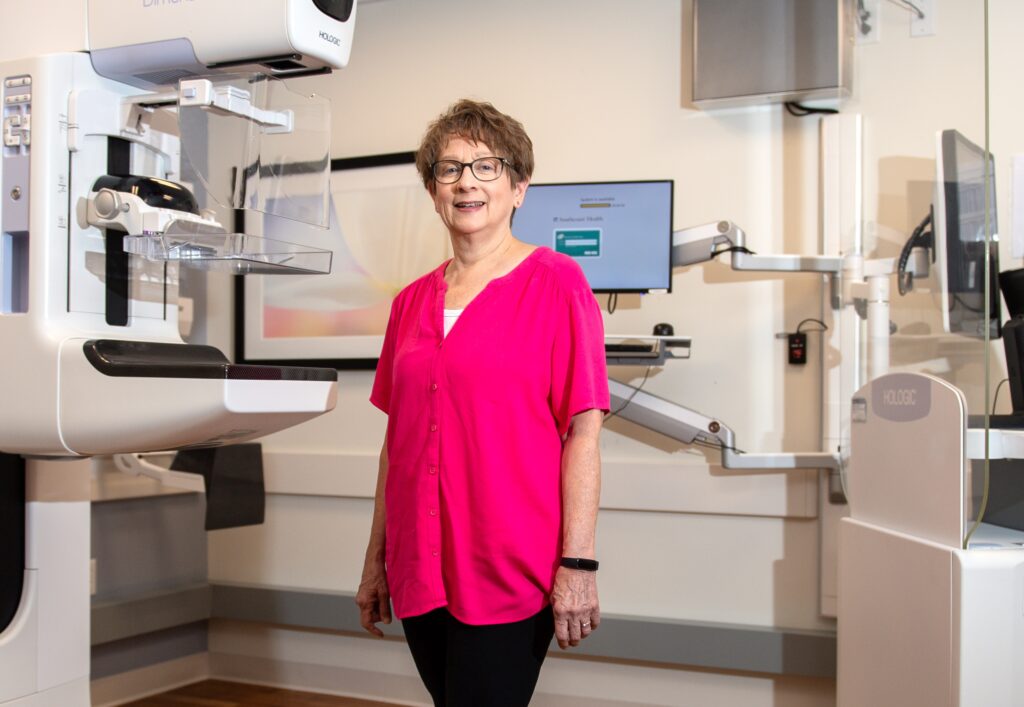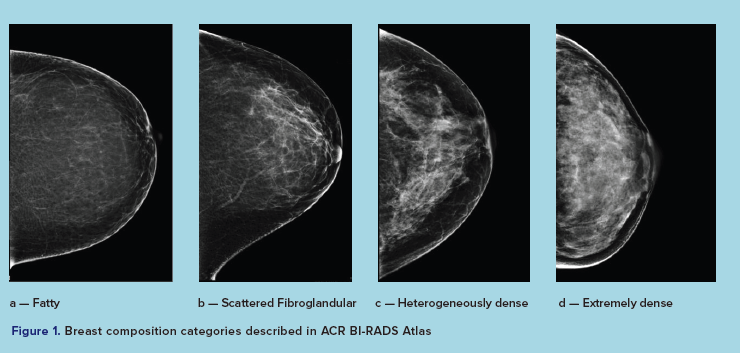
We offer convenient screening mammography at all three of our Breast Center locations, Dartmouth, Fall River, and Wareham. (All of our breast health facilities have been accredited by the American College of Radiology and the Massachusetts Department of Public Health Radiation Control Program.)
All mammography performed at the Southcoast Health Breast Centers uses 3D technology or tomosynthesis to screen for breast cancer. 3D mammograms improve the clarity and the depth of the imaging, giving you the clearest picture of your breast health and breast cancer risk.

“I felt I could trust Dr. Chung right away… She’s wonderful and knowledgeable. She listens to everything you have to say, and she doesn’t sugarcoat things. She expressed her concerns, but made me feel very at ease at the same.”
A 3D mammogram is also known as tomosynthesis, is an imaging test that combines multiple images from breast x-rays to create a three-dimensional picture of the breast. It’s used as a screening test to look for breast cancer signs when patients have no symptoms. But it can also be used to detect the cause of other breast problems, such as pain, nipple discharge, or a breast mass.
Today, statistics report, one in eight women will develop breast cancer in her lifetime. A mammogram can help you find breast cancer before it becomes too serious.
There are many benefits of 3D mammography, including the following:
What to Expect During a Mammogram
A radiologic technologist positions one of your breasts on an x-ray plate during the test and compresses your breast by lowering a top plate. You will need to hold your breath while the technologist takes the x-ray, producing multiple images of your breasts.
When to Get a Mammogram
Your doctor may recommend a mammogram for the following reasons:
If you’re a woman, you should start getting annual mammograms between ages 40-45, depending on your breast cancer risk. Regular screenings should be typically once a year and continue as long as your doctor recommends.

What is breast density? Breasts are made up of a mixture of fibrous and glandular tissue and fatty tissue. If you have a lot of fibrous or glandular tissue, but not much fat, your breasts are considered dense.
If you have dense breasts, you may have an increased risk for breast cancer, making it more difficult for doctors to see cancer signs in a mammogram. The Massachusetts Breast Density Notification Law requires all providers of mammography services to inform a patient in writing if their mammogram shows that they have dense breast tissue. Your radiologist at Southcoast can determine if you have dense breasts from your mammogram.
If you have dense breast tissue, we will provide you with more information about what that means and how we can promote good breast health. We may also require that you take a breast ultrasound or breast MRI for your doctor to see your breast tissue more clearly.
At Southcoast Health Breast Centers, we work with Southcoast’s breast imaging centers to provide mammography and breast health services to women throughout southeastern Massachusetts, as well as parts of Rhode Island. Contact us to schedule a mammogram or for any questions, you may have.